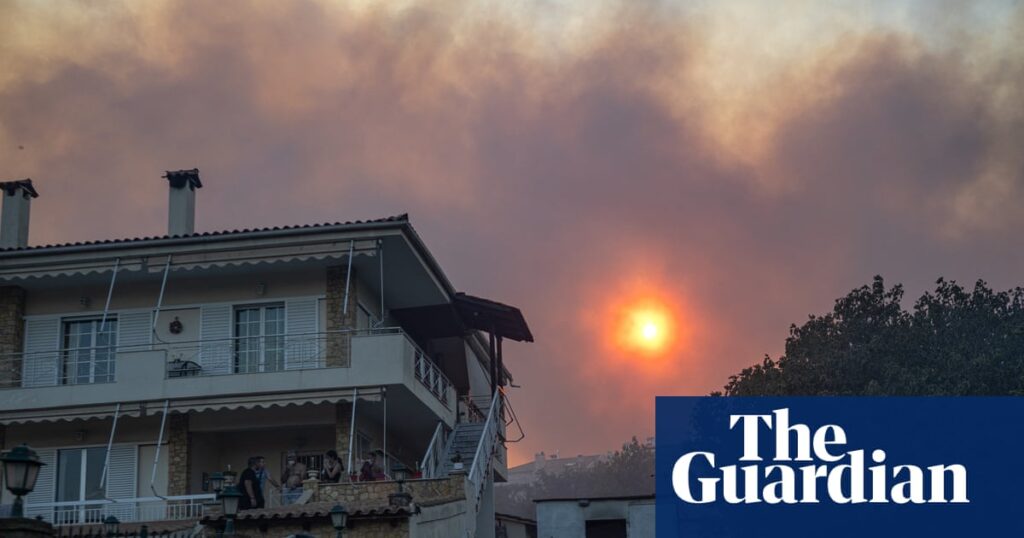Greece is battling wildfires that have ravaged homes and sparked evacuations for a second day, with the help of Czech firefighters and Italian aircraft expected to arrive later on Sunday.
The wildfires were raging on Sunday morning in the Peloponnese area west of the capital, as well as on the islands of Evia and Kythera, with aircraft and helicopters resuming their work in several parts of the country at dawn.
Forecasters predicted the strong winds that have fanned the flames would die down in most areas, but warned that Kythera continued to face “worrying” windy conditions.
Evacuation messages were sent early on Sunday to people on the island, which lies off the south-eastern tip of the Peloponnese, as the fires continued unabated.
“Houses, beehives, olive trees have been burnt,” Giorgos Komninos, the deputy mayor of Kythera, told local outlet ERT News. “A monastery is in direct danger right now,” he said, adding that half of the island had been burnt.
Dozens of firefighters supported by three helicopters and two aircraft were battling the Kythera blaze, which erupted on Saturday morning and forced the evacuation of a popular tourist beach.
Greece had requested help from EU allies and two Italian aircraft were expected on Sunday, according to the fire brigade, with units from the Czech Republic already at work.
Eleven regions of Greece still face a very high fire risk, according to officials.
Firefighters are working in several areas of the Peloponnese and there were flare-ups overnight on the island of Evia, near Athens, where the flames have laid waste to swathes of forest and killed thousands of farm animals.
Further south, on Crete, reports said fires that broke out on Saturday afternoon and destroyed four houses and a church had been largely contained.
Greece has endured heatwave conditions for almost a week, with temperatures passing 40C (104F) in many areas, though the heat is expected to die down from Monday.

